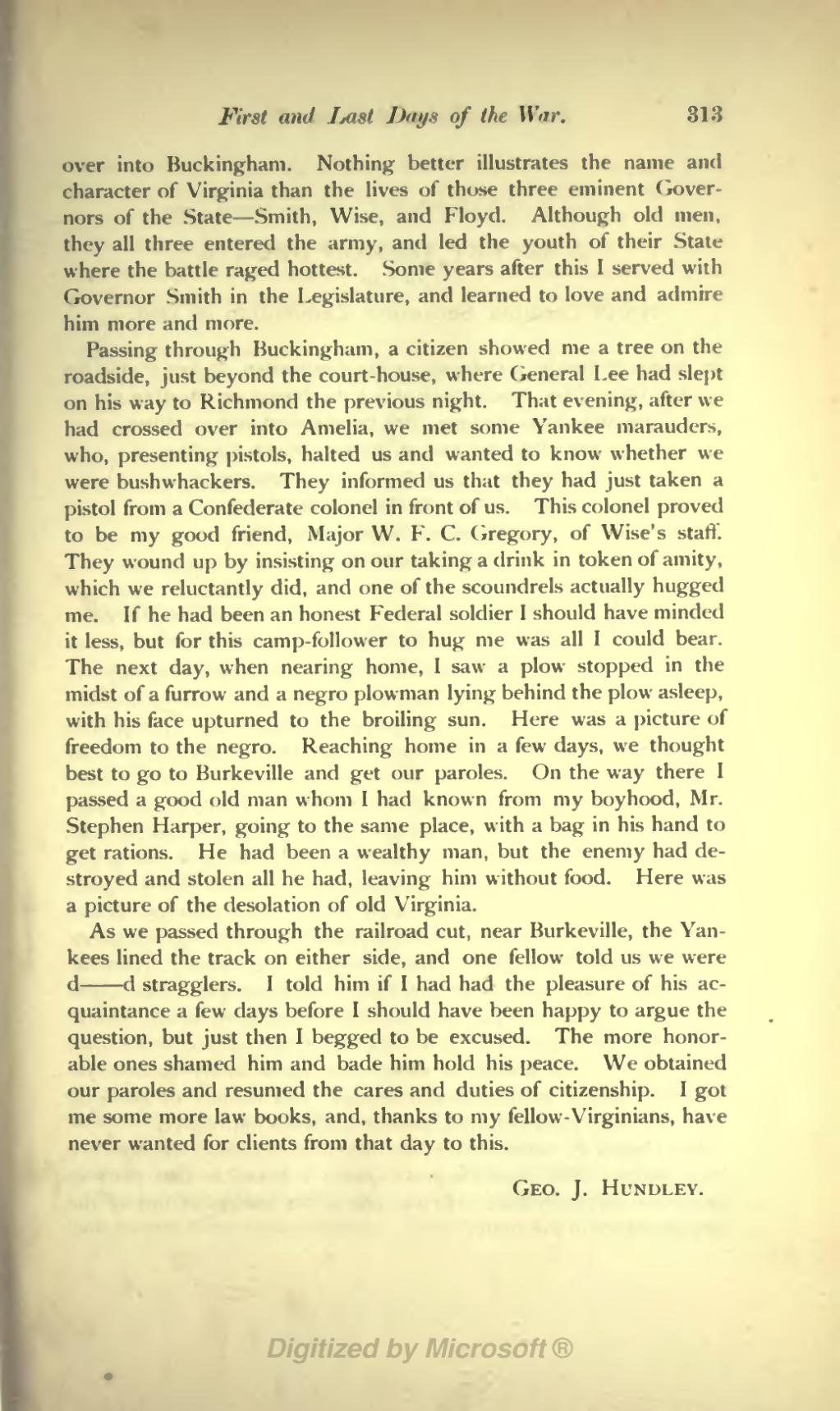/.,/>/
over into Buckingham. Nothing better illustrates the name and character of Virginia than the lives of those three eminent Gover- nors of the State Smith, Wise, and Floyd. Although old men. they all three entered the army, and led the youth <>! tlu-ir State where the battle raged hottest. Some years after this I served with Governor Smith in the Legislature, and learned to love and admin him more and more.
Parsing through Buckingham, a citizen showed me a tree on the roadside, ju^t beyond the court-house, where General Lee had slept on his way to Richmond the previous night. That evening, after we had crossed over into Amelia, we met some Yankee marauders, who, presenting pistols, halted us and wanted to know whether we were bushwhackers. They informed us that they had just taken a pistol from a Confederate colonel in front of us. This colonel proved to be my good friend, Major W. F. C. Gregory, of Wise's staflf. They wound up by insisting on our taking a drink in token of amity, which we reluctantly did, and one of the scoundrels actually hugged me. If he had been an honest Federal soldier I should have minded it less, but for this camp-follower to hug me was all I could bear. The next day, when nearing home, I saw a plow stopped in the midst of a furrow and a negro plowman lying behind the plow asleep, with his face upturned to the broiling sun. Here was a picture of freedom to the negro. Reaching home in a few days, we thought best to go to Burkeville and get our paroles. On the way there I passed a good old man whom I had known from my boyhood, Mr. Stephen Harper, going to the same place, with a bag in his hand to get rations. He had been a wealthy man, but the enemy had de- stroyed and stolen all he had, leaving him without food. Here was a picture of the desolation of old Virginia.
As we passed through the railroad cut, near Burkeville, the Yan- kees lined the track on either side, and one fellow told us we were d d stragglers. I told him if I had had the pleasure of his ac- quaintance a few days before I should have been happy to argue the question, but just then I begged to be excused. The more honor- able ones shamed him and bade him hold his peace. We obtained our paroles and resumed the cares and duties of citizenship. I got me some more law books, and, thanks to my fellow-Virginians, have never wanted for clients from that day to this.
GEO. J. HUNDLEY.
